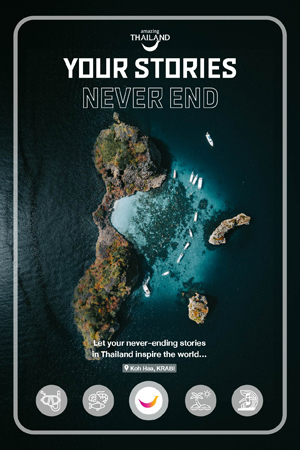VIENTIANE, 26 December 2023: “You have such a beautiful country; please preserve it as much as possible,” a group of Spanish tourists observed as they chatted to a Laos tourism promotion team.
During the brief encounter, they commented on the country’s unspoilt beauty while visiting a spectacular viewpoint in Ban Hang Khon, far south of Don Khon Island, where the Mekong River delineates the Cambodian border.
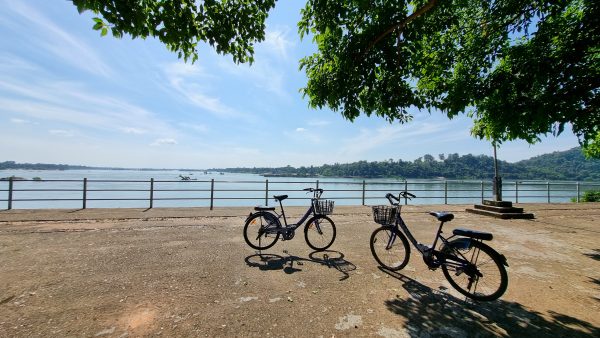
Their message was simple, sincere, and clear, reflecting their experiences at tourist stops as they journeyed from northern Laos towards Cambodia, their next destination.
It underlined the importance of having a sustainability vision that is always top-of-mind when today’s travellers research their next travel experience. It reminds stakeholders in the tourism industry to embrace sustainability ahead of driving profit and boosting visitor arrivals.
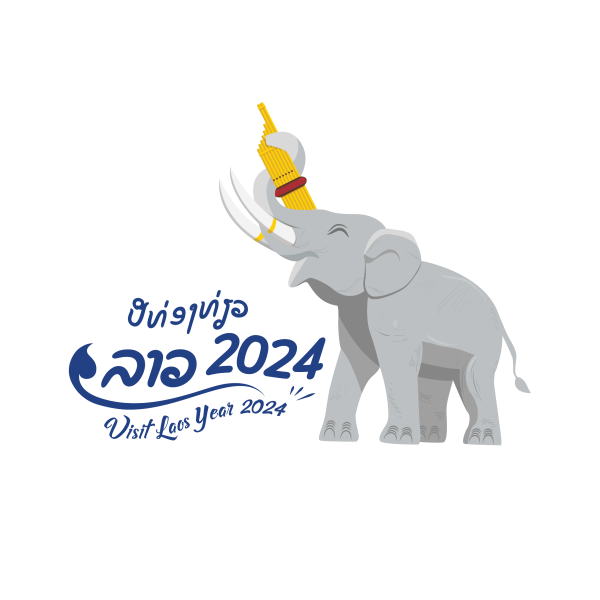
In the upcoming year, Laos’s tourism treasures will take centre stage under Visit Laos Year 2024, themed “Laos: A Paradise of Culture, Nature, and History.” Gearing up to showcase the country’s tourism potential, the Ministry of Information, Culture, and Tourism organised a FAM trip for Thai media and influencers in early December.
The aim was to highlight the rich tourism resources of southern Laos, focusing on nature and authentic Laotian experiences.
There are no direct flights from Bangkok to Pakse, the gateway city to the southern provinces of Laos. You must first fly to Vientiane, then connect with domestic flights to Pakse. Or take the overland route crossing at the Chong Mek Border Checkpoint between Thailand and southern Laos. The distance between the border checkpoint and Pakse is approximately 43 km. You can fly or take the train from Bangkok to Ubon Ratchathani and then transfer by bus or taxi to the border, a distance of 95 km (one hour and 20 minutes by car).
During the first nine months of this year, Champasak province in Laos welcomed 206,914 visitors. The southern region is best known for the charm and spectacular views of the Mekong and 4,000 river islands, but there are trekking options to waterfalls for those who love soft adventures. Among the top heritage attractions is Vat Phou, the pride of Laos, which has been recognised as a UNESCO World Heritage Site. The province features 244 tourist attractions, including 139 natural, 62 cultural, and 43 historical sites.
The FAM trip showcased the beauty of southern Laos’ nature, particularly waterfalls and rivers, as part of Champasak’s tourism development while highlighting four areas: Si Phandon; the Champasak World Heritage Cultural Zone; the Bolaven Plateau in Paksong, and the cultural and natural areas located in different districts.
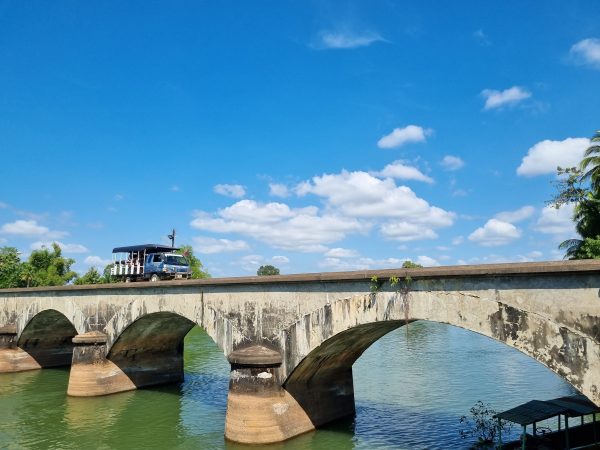
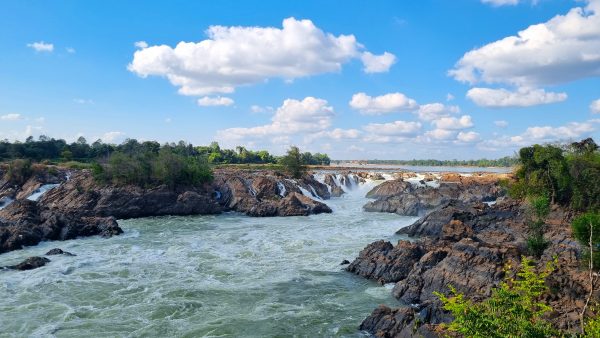
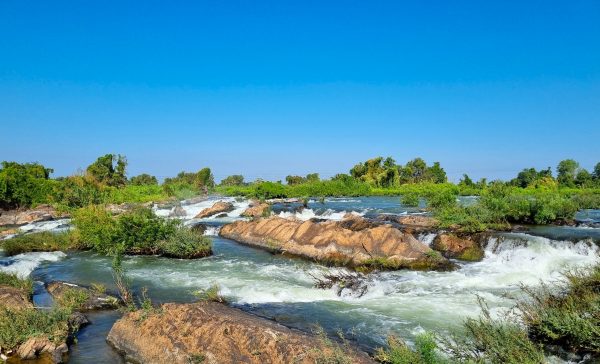
The journey from Vientiane began late in the morning with a one-hour flight on Lao Airlines, landing in Pakse by lunchtime. The overland journey to Don Det followed, covering approximately 130 km.
At Nakasang, the last stop and the nearest village to Don Det, we board boats to transfer to Don Det. Upon arrival, it presented a glimpse of the scenery bathed in the sunset along the Mekong River. Here, riverside resorts and bungalows offer a perfect base to explore a riverine archipelago of islands, creating a natural awe-inspiring spectacle on the broad and fast-flowing Mekong River.
Don Det and Don Khon islands are perfect spots for those exploring Si Phan Don, including the famous Li Phi Waterfall. Don Det is linked with Don Khon by a bridge. The road around these river islands has recently been improved and is in good condition year-round. Visitors can use local tourist vehicles or bicycles to explore island attractions.
After an overnight in Don Det and a half-day excursion, the group left the island and visited Khon Phapheng Waterfall before heading north of Champasak for Paksong, a city in Laos on the Bolaven Plateau.
The area enjoys a year-round cool climate and is renowned for its coffee and tea, which has a distinctive flavour due to the plateau’s volcanic soil. It also boasts numerous waterfalls.
The Paksong Excursion Day began at Tad Koo Waterfall. This picturesque spot offers convenient access to the two-steam waterfall, with a restaurant and tourist facilities. It’s a perfect lunch stop where visitors can enjoy a meal in a simple raft shed or right next to the waterfall, where local speciality dishes are served on a table while you dip your feet in the refreshingly cool water.
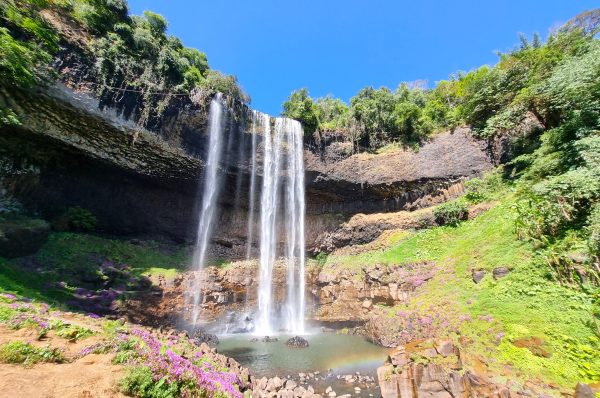
Approximately 8 km from Tad Koo, Tad Tayicseua Waterfall provides soft adventure activities that explore the area around the site of seven waterfalls cascading from rocky ledges high above the pristine forest. Trekkers can spend a day here. Visitors can also observe one of the major waterfalls, Tad Kob, 70 metres high, from the viewpoint area.
Among the seven falls, Tad Phueng takes the spotlight with a 700-metre hike along fairly steep rocky inclines—a potential challenge in the rainy season. The morning is the prime time to visit, with sunlight reflecting on the waterfall, creating a rainbow effect amid wildflowers.
Another famous waterfall, Tad Gneuang, some 50 km away, is the target destination in the afternoon. Along the way, a few stops made for a taste of Lao coffee. Highlights include Paksong Highland Coffee Estate – where coffee drinkers can observe coffee plantations, and CC1971 – a famous check-in spot along the route. The CC1971 café is located in a vintage bombed-out building dating back to the civil war 1971. It serves coffee from roasted beans sourced in local family-run plantations. Its unique décor features remnants of artillery guns and even downed jets, adding a historical touch to the ambience.
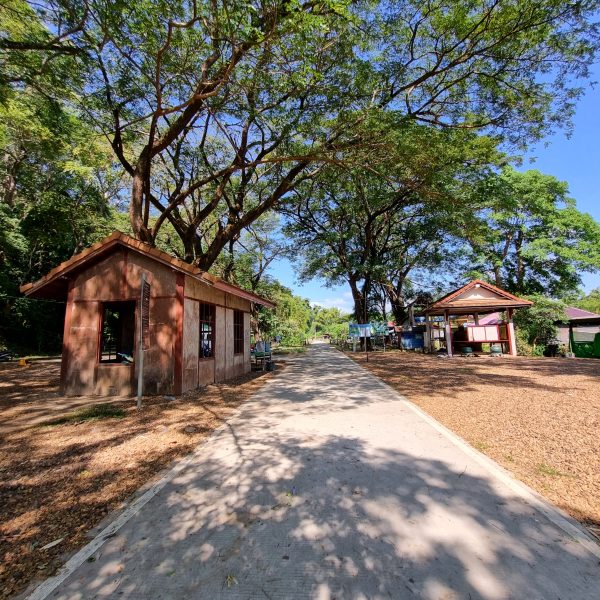
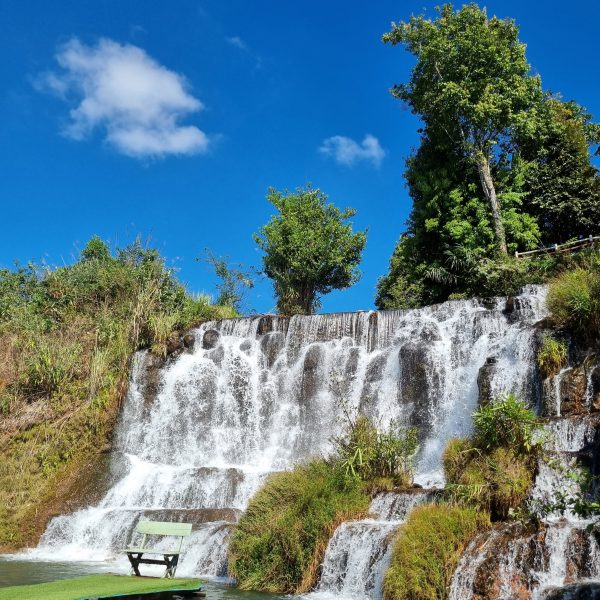
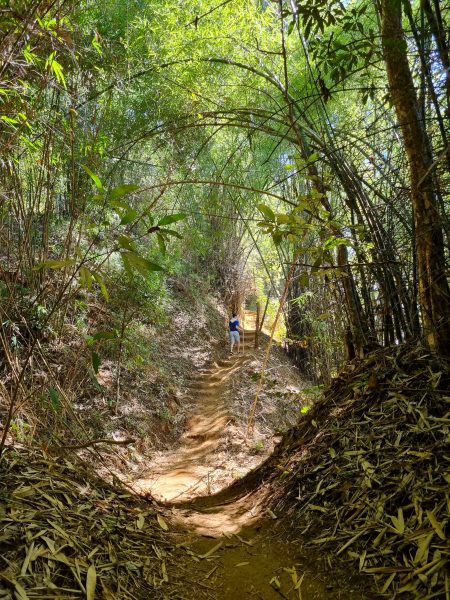
The journey covers approximately 12 km, leading to Tad Gneuang Waterfall. At the entrance, the site features restaurants and tourist facilities overlooking the waterfall’s ridge. Visitors can relish a panoramic view of lush greenery from the waterfall’s lofty prominence, or they can descend the steep steps and walkways to gain a close-up experience of the waterfall’s base.
A trip to Champasak wouldn’t be complete without exploring Vat Phou, one of the country’s renowned UNESCO World Heritage sites. Constructed during the Khmer Empire era, the Hindu temple stands at the base of Mount Phou Khao, symbolising a connection between nature and humanity. Vat Phou was listed as a UNESCO site in 2001. The other UNESCO World Heritage sites in Laos are the town of Luang Prabang and the megalithic jar sites in Xiengkhuang – Plain of Jars.
As our FAM trip to Champasak concludes, the destination is abuzz with preparations for Visit Laos Year 2024. It will feature a lineup of 12 exciting activities. The anticipation adds an extra layer of excitement, inviting travellers to immerse themselves in the southern charm of Laos.
Champasak beckons with open arms to explore the region’s pristine nature or ancient temples, indulge in local flavours or connect with vibrant traditions. It promises an unforgettable experience for those who venture south beyond popular tourist destinations to Pakse, where the mighty Mekong flows fast over vast stretches of rapids to the border with Cambodia.
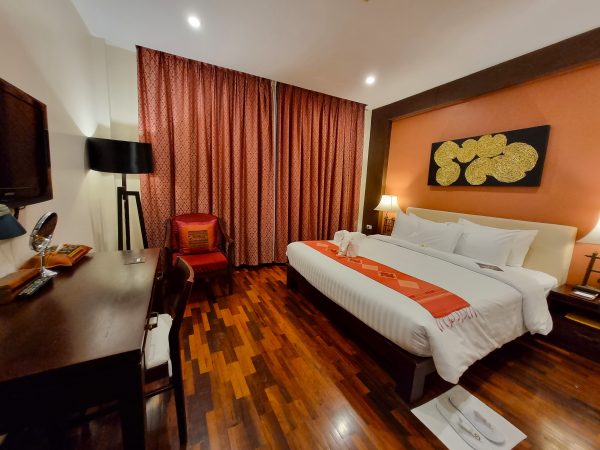
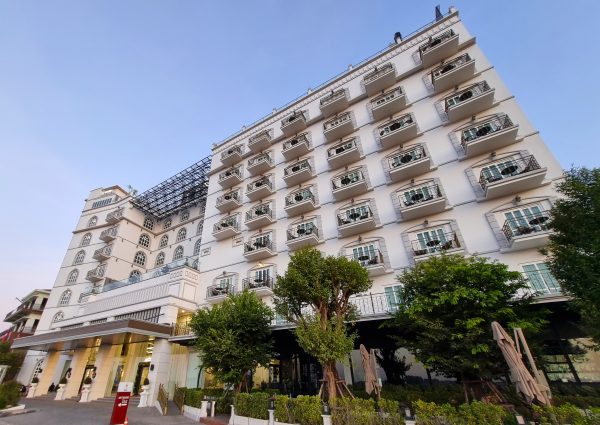
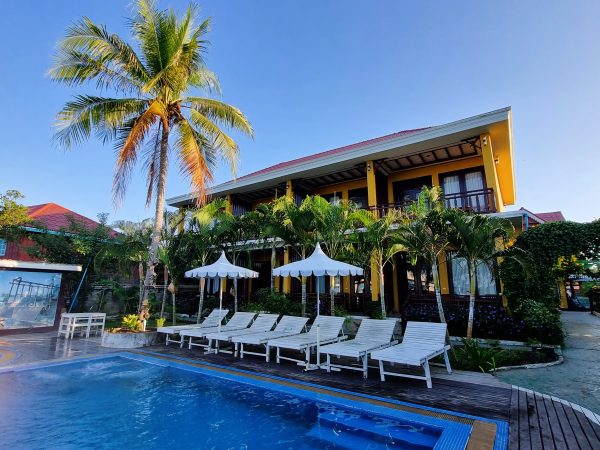
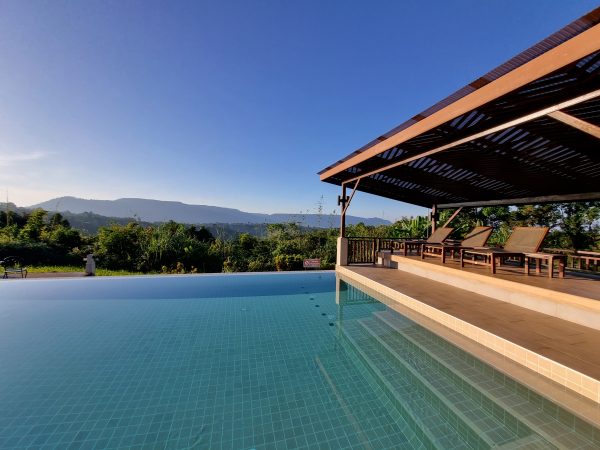
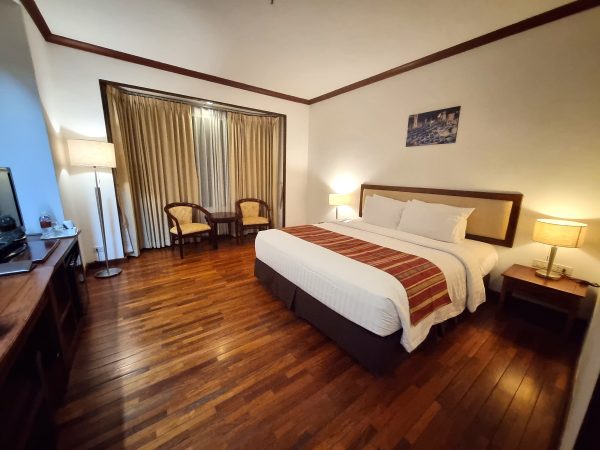
Salana Boutique Hotel is located on Chao Anou Road, Vientiane. In close proximity to the hotel, visitors can explore the night market and delight in the local atmosphere while trying street food along the Mekong River. The hotel is conveniently located around 5 km from Wattay International Airport.
Eastin Hotel Vientiane is situated right on the shore of the Mekong River, on Khaemkhong Road. The hotel offers 93 rooms and suites. The overall design is contemporary throughout its interior. Highlight facilities include an all-day-dining restaurant, pool bar, and rooftop bar.
Golden Hotel Don Det allows visitors to enjoy a stay and panoramic views of the Mekong River in the Si Phan Don Archipelago. Rated with 3 stars, the property provides guests with standard facilities, including a riverside restaurant and on-site pool.
Sabaidee Valley is located on Km.33 of 16E road, gracefully landscaped in the highlands of Champasak. The complex comprises a resort, restaurant, coffee shop, and souvenir store. Situated on 40 rai of land, 800 meters above sea level, it offers 26 villas and two buildings with 16 rooms each. The outdoor swimming pool area affords a picturesque view of the Bolaven Plateau.
Considered one of the top hotels in Pakse, the 4-star Champasak Grand offers a prime location and comfortable accommodation. Set next to the Mekong River with the Lao-Nippon Bridge in sight, the hotel in Pakse is a 15-minute ride from Pakse International Airport.


